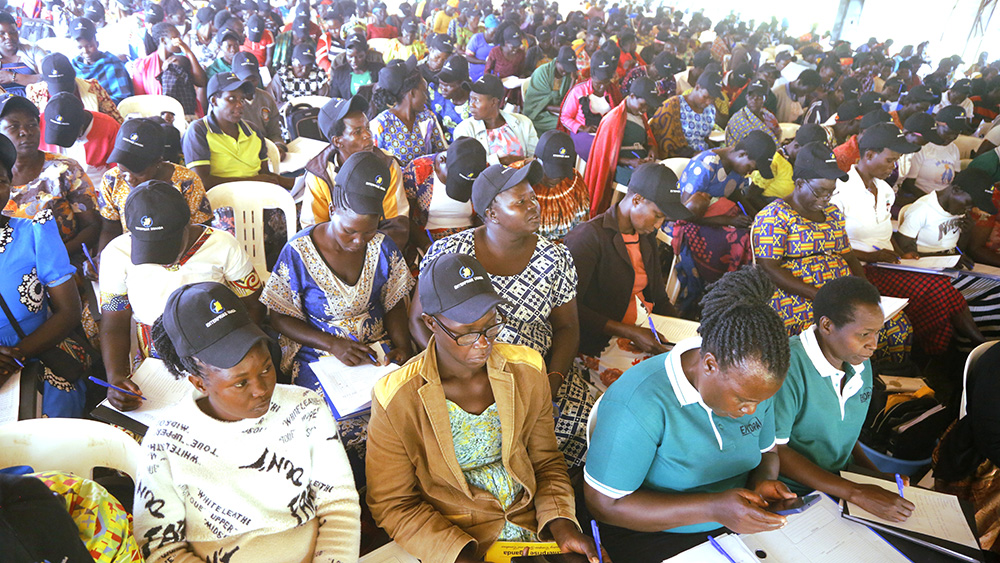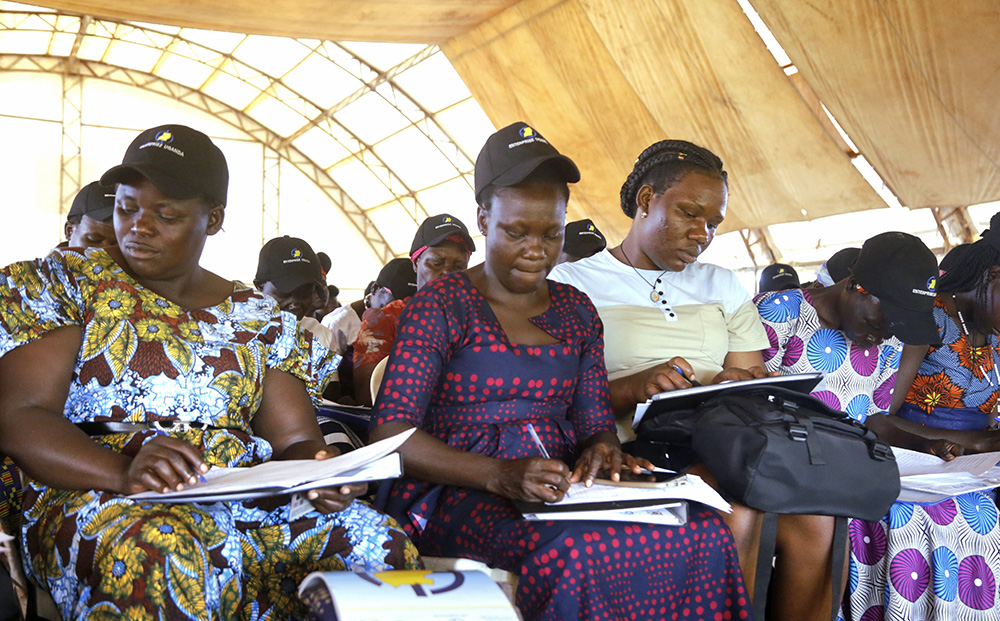GROW project unlocks new business opportunities for women in Teso
According to Enterprise Uganda, women are leading in essential skills training that is already reshaping business mindsets and expanding income-generating activities.
Charles Ocici, the Director General of Enterprise Uganda, said the GROW project was deliberately designed to give women the practical skills they need to build resilient, competitive and growth-ready enterprises. (Courtesy photo)
_______________
Women entrepreneurs across the Teso sub-region are beginning to tap into new economic opportunities following the rollout of the Government of Uganda’s GROW project.
According to Enterprise Uganda, women are leading in essential skills training that is already reshaping business mindsets and expanding income-generating activities.
Speaking during an engagement with trainees in Soroti and Serere last week, Charles Ocici, the Director General of Enterprise Uganda, said the GROW project was deliberately designed to give women the practical skills they need to build resilient, competitive and growth-ready enterprises.
Some of the trainees that attended the training. (Courtesy photo)
“The project equips women with essential skills in personal development, entrepreneurship mindset, customer engagement, business management, use of mobile phones for business, and sustainability. For refugees, there is a special module on adapting and thriving as refugee entrepreneurs,” Ocici said.
He explained that the Ministry of Gender, with support from the World Bank, tasked Enterprise Uganda to develop and deliver these modules because many women require both business and non-business competencies to navigate barriers such as limited access to finance and weak enterprise management.
Ocici said the selection of beneficiaries is intentional to ensure real impact. “
She must be a woman, and she must already have a business. You cannot call yourself an entrepreneur when you don’t have a business,” he said, adding that training prepares participants to make informed financial decisions and responsibly engage credit.
“After acquiring essential skills, a woman can assess whether she needs a loan, define its purpose and develop a proper budget. We then link them to vetted banks through the Private Sector Foundation Uganda,” he noted.
Women Positioned for Larger Markets
Ocici said Uganda is entering a window of opportunity as infrastructure, security and connectivity improve. “As Uganda opens to the world, it must find its citizens ready to do business—ready to export and ready to partner with investors,” he said.
He added that the GROW project was created to help women graduate from survival-level enterprises to high-value opportunities.
“This initiative will move women from microcredit levels of sh4–200m into the sh500m to sh2b range, and eventually into large joint ventures worth billions, The long-term goal is for women to operate not as beneficiaries of affirmative action, but as business leaders who can compete anywhere,” Ocici said.
Local Leaders Say Women Are Already Progressing
Emmanuel John, an aspiring Mayor of Soroti City, said the project is already stimulating enterprise growth and strengthening household welfare.
“When a woman is empowered, children eat; when women invest, children go to school. And when development takes root through women, the entire nation grows,” he said.
Emmanuel, who interfaced with the trainees, reported that women who accessed GROW funds are successfully running projects such as animal fattening and other income-generating ventures.
“We have interacted with these entrepreneurs, and many are thriving. The GROW project has boosted their daily struggles and turned them into productive enterprises,” he said.
He encouraged more women to join. “If there is an opportunity for you to access these funds, please do so. There is no limitation. This programme has helped many, and we want all eligible women to benefit,” he added.
Serere Women Turning Idle Resources into Profit
In Serere District, Apolot Merab, the PDM Chairperson, said the training has triggered a mindset shift that is opening new areas of opportunity.

Some of the trainees that attended the training. (Courtesy photo)
“These teachings have opened our minds. We now see value in things we once considered useless. Our swamps, for instance, will now be used for fish farming and insect farming,” she said.
Serere women are also exploring value addition after years of selling cassava and maize cheaply.
“We are waking up. We want to become stockists, make our own fish feeds, and add value to our products so we sell at a better price,” Apolot said.
She urged government to extend the programme beyond 2027. “Some of us are just encountering this initiative for the first time. We believe there should be another phase for further growth,” she said.
Apolot encouraged more women across Teso to embrace enterprise. “A woman can keep money, invest money and support her family. Business is something a woman can do,” she added.